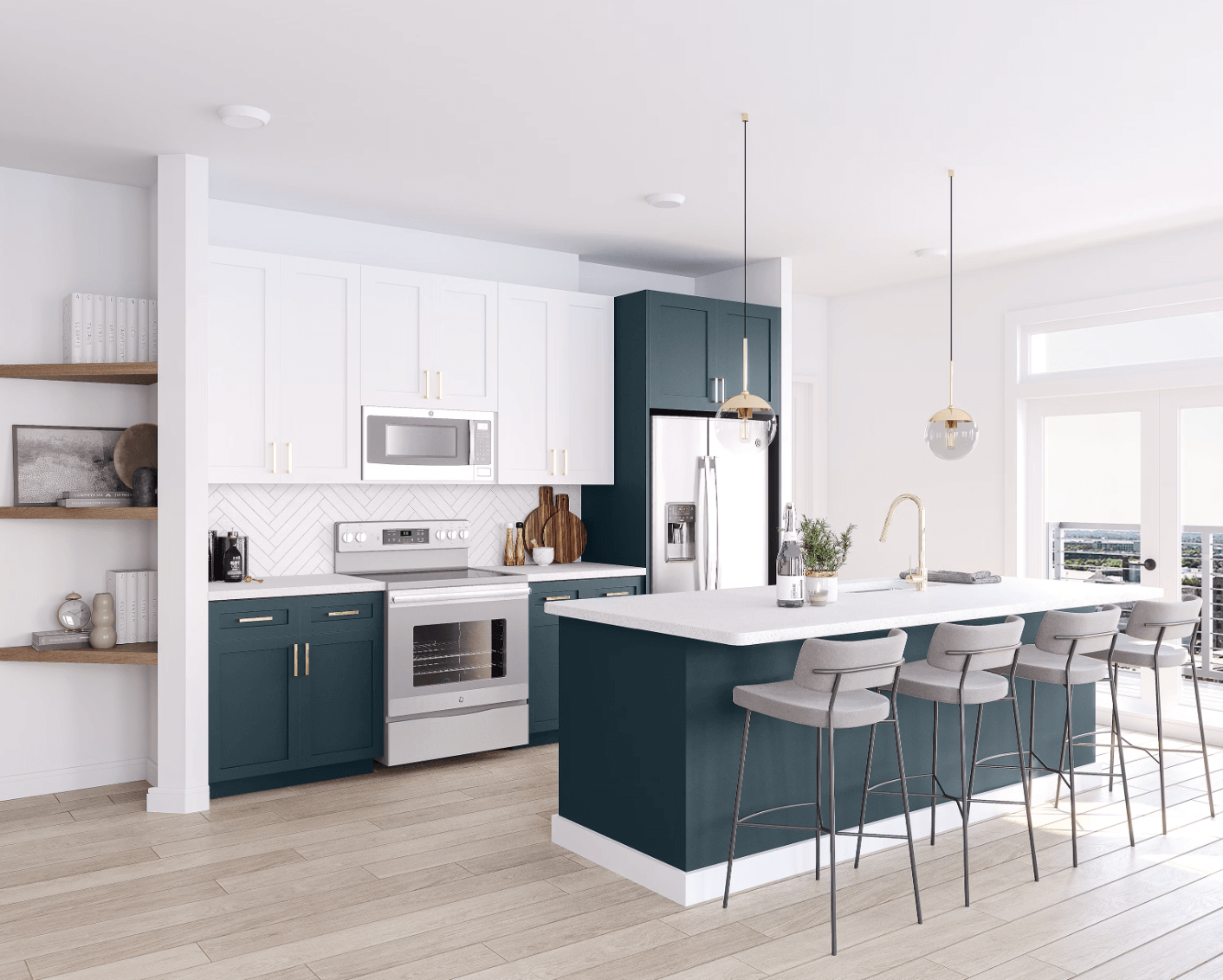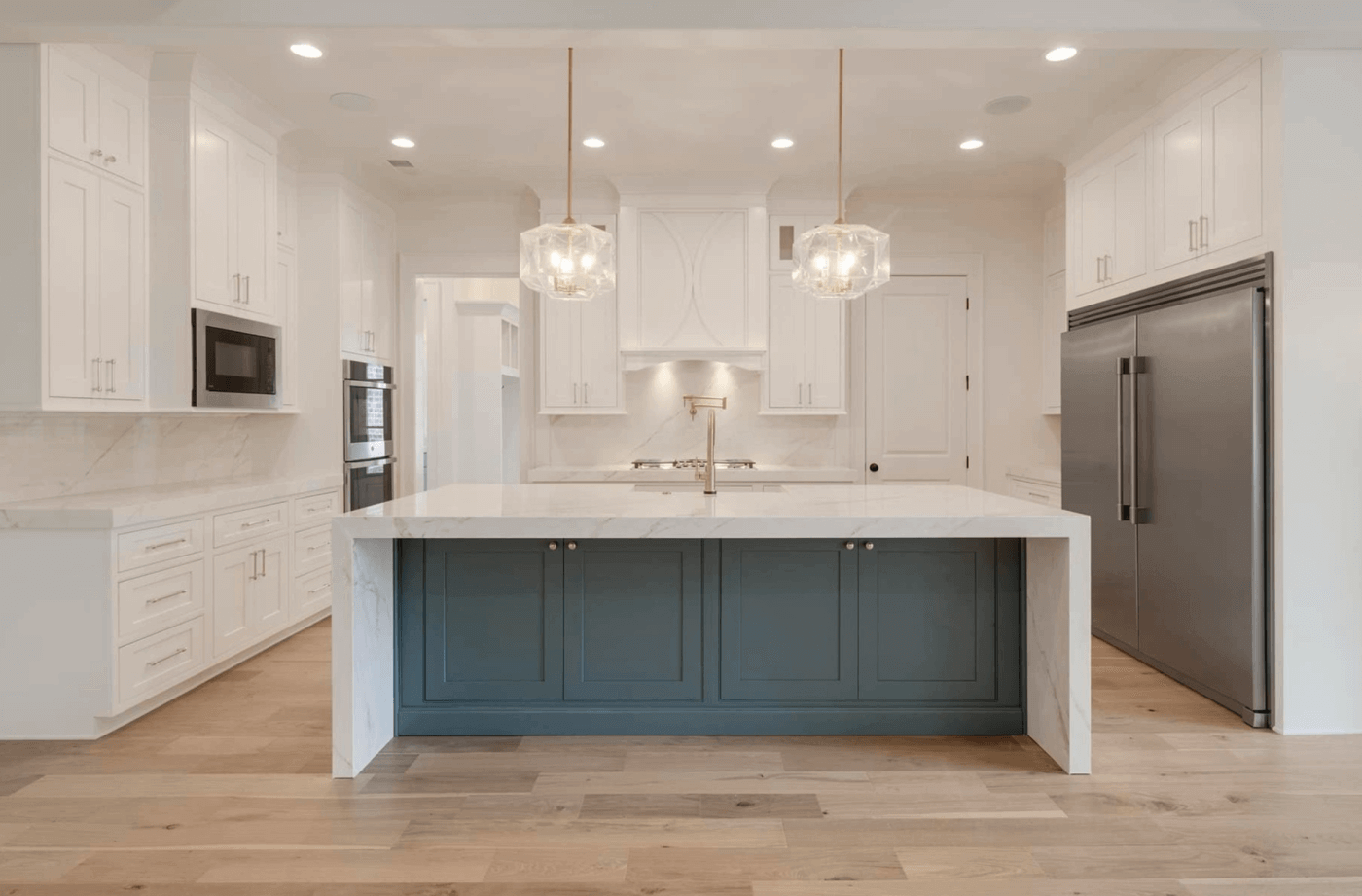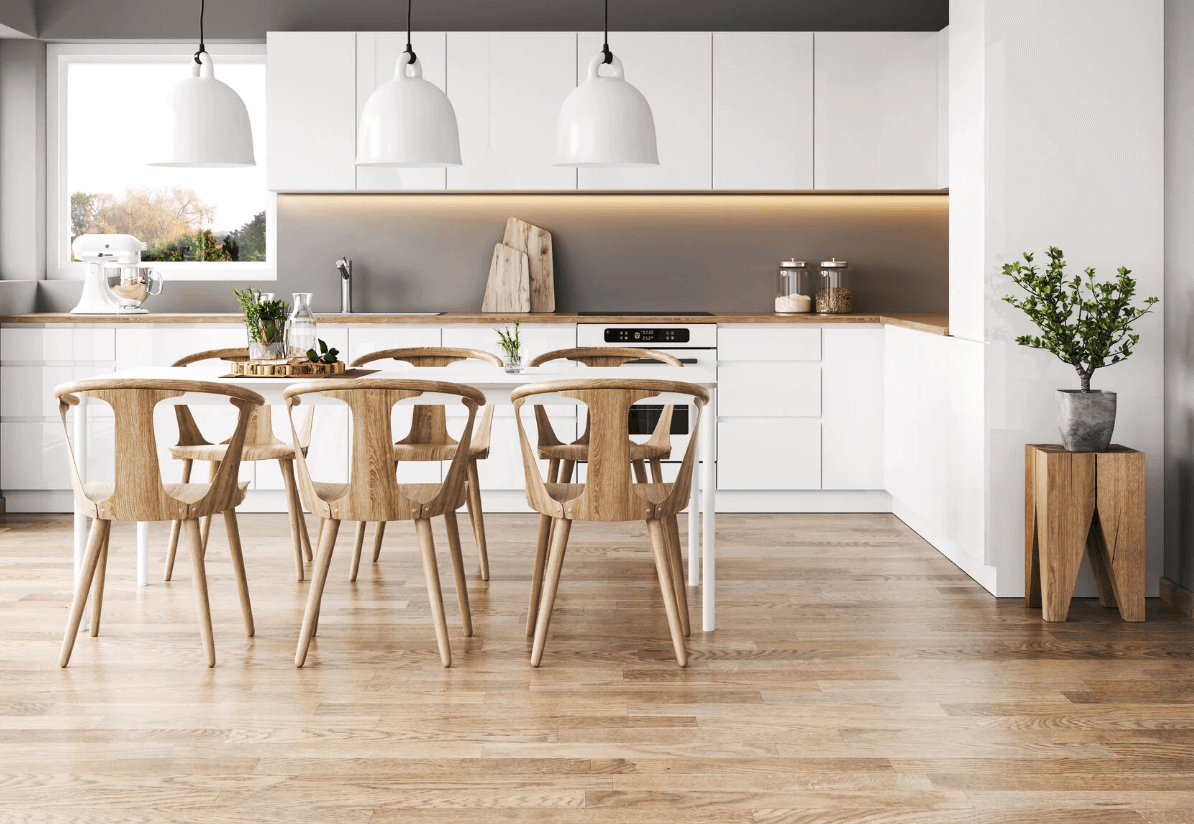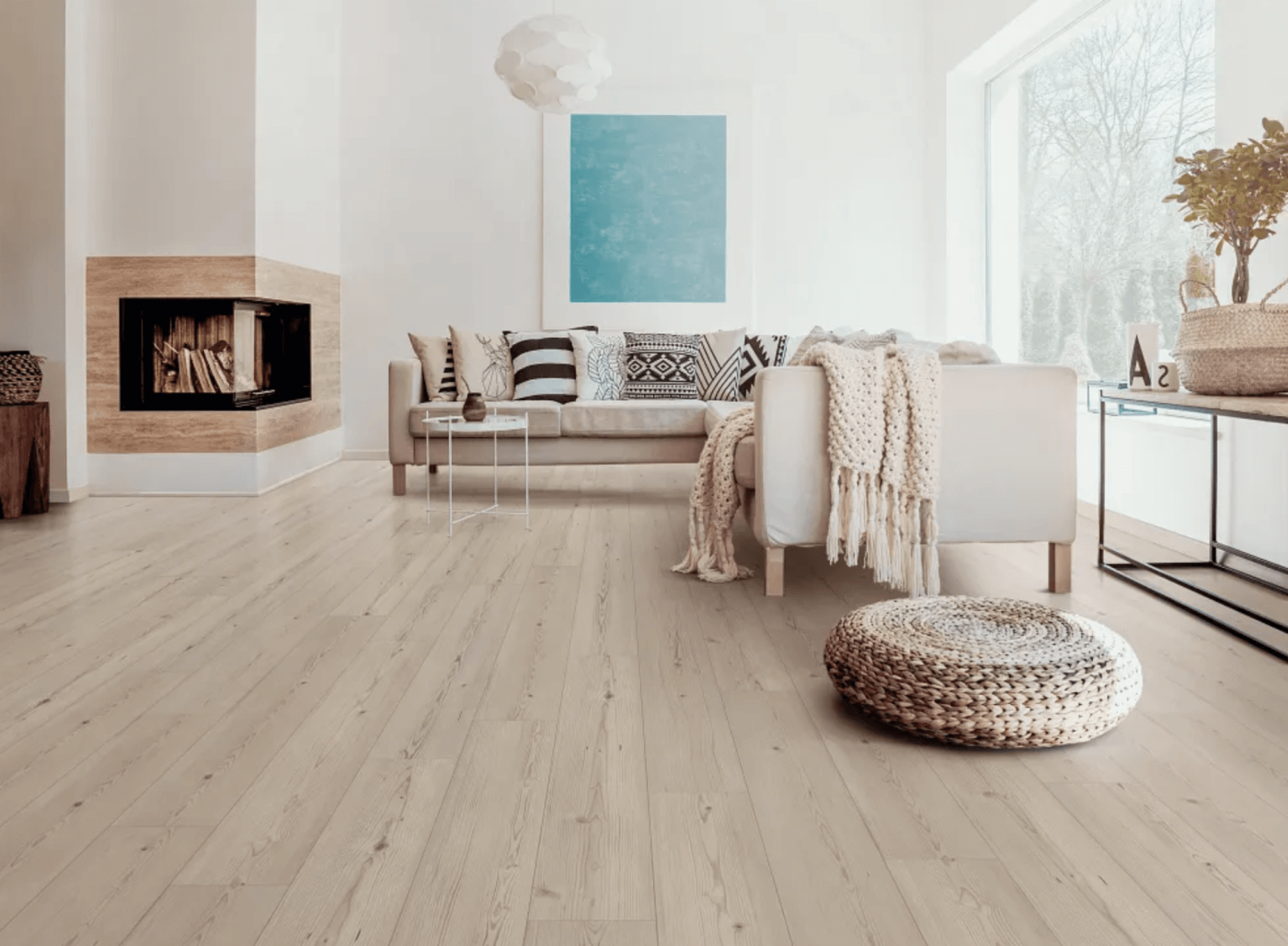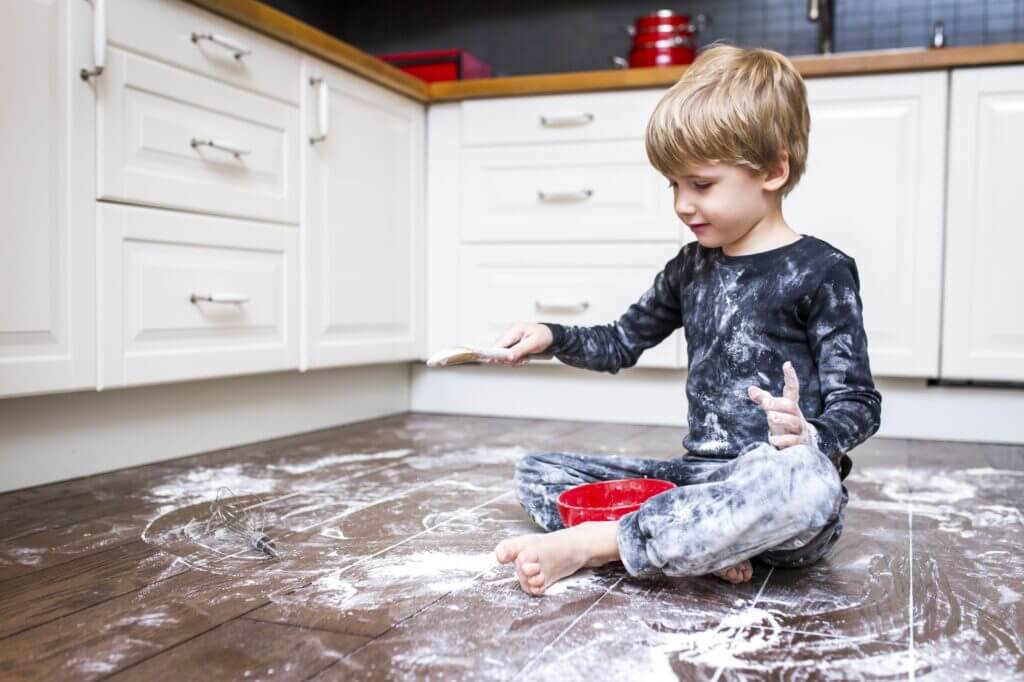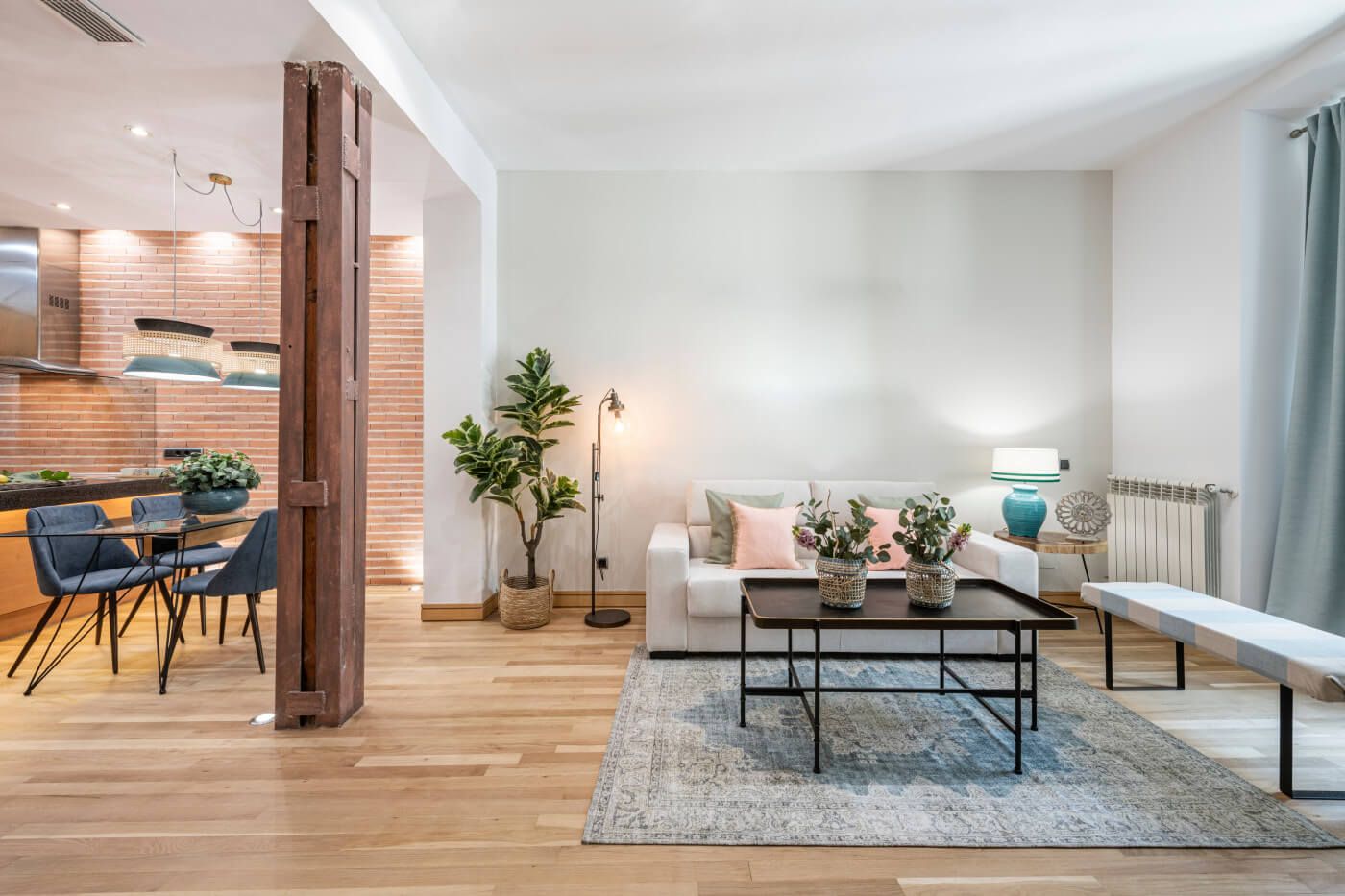Choosing the best kitchen flooring is more than just finding something that looks nice.
Your product must be versatile enough to deal with spills, thrills, and maybe some wine spilled on the floor. But with so many options out there, we know it can be overwhelming to decide. Whether you're after a high-end finish or a low-maintenance solution, we’ve got you covered.
Let’s break down the best choices for your kitchen floor so you can enjoy both form and function for years to come.
What Are the Best Kitchen Flooring Options?
There are only four options to choose from, to be installed in your kitchen.
1. Engineered Wood Flooring
This is by far the most popular type of flooring for kitchens in 2025.
Engineered hardwood has all the beauty of real hardwood but is more durable as it has a thicker top layer, also known as a wear layer. Homeowners love engineered hardwood because it is moisture-resistant and matches nearly every decor.
Installing hardwood in your kitchen will provide a good ROI if you ever decide to sell.
2. Luxury Vinyl Plank (LVP) or Luxury Vinyl Tile (LVT)
If engineered hardwood is not in your budget, LVP or LVT are your next best option.
Both LVP and LVT are extremely durable, and these products are built to mimic the look of hardwood and tile, respectively. They are made with a plastic layer on top of a stone or plastic core. They are durable, waterproof, and affordable, but you can also get premium-quality LVP, like the ones in our collection.
Homeowners choose LVP or LVT because it sits at a middle price point and it is very easy to install. A lot of the time, you can install it right on top of your current kitchen flooring.
3. Ceramic or Stone Tiles
Ceramic and stone tiles are great options for kitchen floors, but they can get expensive.
Both of these make a kitchen look stunning, but they are much harder to maintain compared to engineered wood or even LVP. But if you want to make your kitchen flooring stand out, we recommend ceramic tile over stone tiles since they are easier to maintain and can match almost any decor.
Whichever one you choose, it will look great on your kitchen floor, but bring a big checkbook!
4. Laminate Flooring
This is the most practical option, but for some people, it’s also the most boring option on the list.
Laminate is affordable, and there are some durable and waterproof laminate options out there. With that being said, laminate does not give you that WOW factor in the kitchen. So, if you just want something that does the work at the lowest price, then go with laminate. But if you want your kitchen to stand out, then we recommend going with one of the previously mentioned options.
You can find similarly priced LVP and enjoy the kitchen floor you deserve.
Kitchen Flooring Options to Avoid?
These floors are on our “best avoid putting in the kitchen” list, and here’s why:
1. Carpet
Carpet flooring is soft under your feet, but it has not been installed in kitchens since the 1980s. The second you spill wine, tomato sauce, or olive oil on the carpet, it will stain. Please avoid making the mistake of investing in the carpet for your kitchen.
Save carpet for bedrooms and living rooms.
2. Solid Hardwood
This is the most beautiful product of all the products we have discussed, but it is by far the hardest to maintain. Solid hardwood will look beautiful, but it will scratch easily, and it does not go well with any water. It's tempting to put hardwood in your kitchen, but if you are leaning that way, we would highly suggest going with engineered hardwood.
Kitchen Flooring Pricing
Of all the products we just talked about, here is how they stack up in price:
Expensive – Solid Hardwood
Less expensive – Engineered Hardwood, Ceramic and Stone Tile
Affordable – LVP and LVT, Laminate
In Summary
Choosing the right flooring for your kitchen means balancing practicality with beauty. In our opinion, engineered hardwood is the best flooring for kitchens in 2025. It has the look and feel of solid hardwood but has a more durable performance in the kitchen and is not fazed by occasional spills of water.
But if this is out of your budget, consider LVP/LVT, especially the SPC construction.






